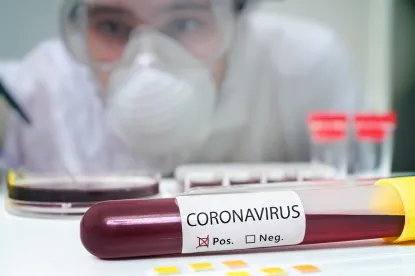Thanks to HBO’s documentary, “The Inventor: Out for Blood in Silicon Valley,” and a barrage of media coverage about Elizabeth Holmes and her defunct company, Theranos, it is unmistakable that big misrepresentations can lie in public statements regarding miniscule quantities of blood.
This lesson proved true again last month, when the CEO of Decision Diagnostics, a pharmaceutical testing company, widely publicized that the company could accurately test for COVID-19, providing near-instant results with only a finger-prick of blood. In one press release, the CEO, Keith Berman, went so far as to say the COVID-19 testing would be “commercial ready” by summer of 2020. The market took note, and the company’s stock soared (by a whopping 1,200%) following Berman’s statements.
Unfortunately, these claims may have been too good to be true. According to a complaint filed by the SEC last month, Berman knew the company’s manufacturer hadn’t made a single testing kit or prototype device able to test for COVID-19 in a blood sample of any size. The SEC also alleges that in his public statements, Berman went so far as to fabricate images purporting to show the testing device, even though he knew it didn’t exist.
Based on these allegations, the SEC’s action asserts violations of the Exchange Act and seeks to bar Berman and Decision Diagnostics from violating federal securities laws and order them to pay civil penalties, among other things.
This case is not the first securities fraud suit relating to COVID-19 testing misrepresentations. The SEC has filed numerous complaints premised on allegedly false or misleading claims by publicly-traded companies that their products or services could prevent, detect, or cure COVID-19. Private investors have followed suit. For example, last month, shareholders of Sona Nanotech sued the company based on allegedly misleading statements about the timing and likelihood of approval of rapid detection COVID-19 antigen tests, precipitating multiple drops in share prices.
In light of these and other newly emerging examples, publicly traded companies should be on notice that representations relating to COVID-19 testing – from the timing for its development to its very viability –will undoubtedly attract scrutiny from both the SEC and shareholders.



 />i
/>i
